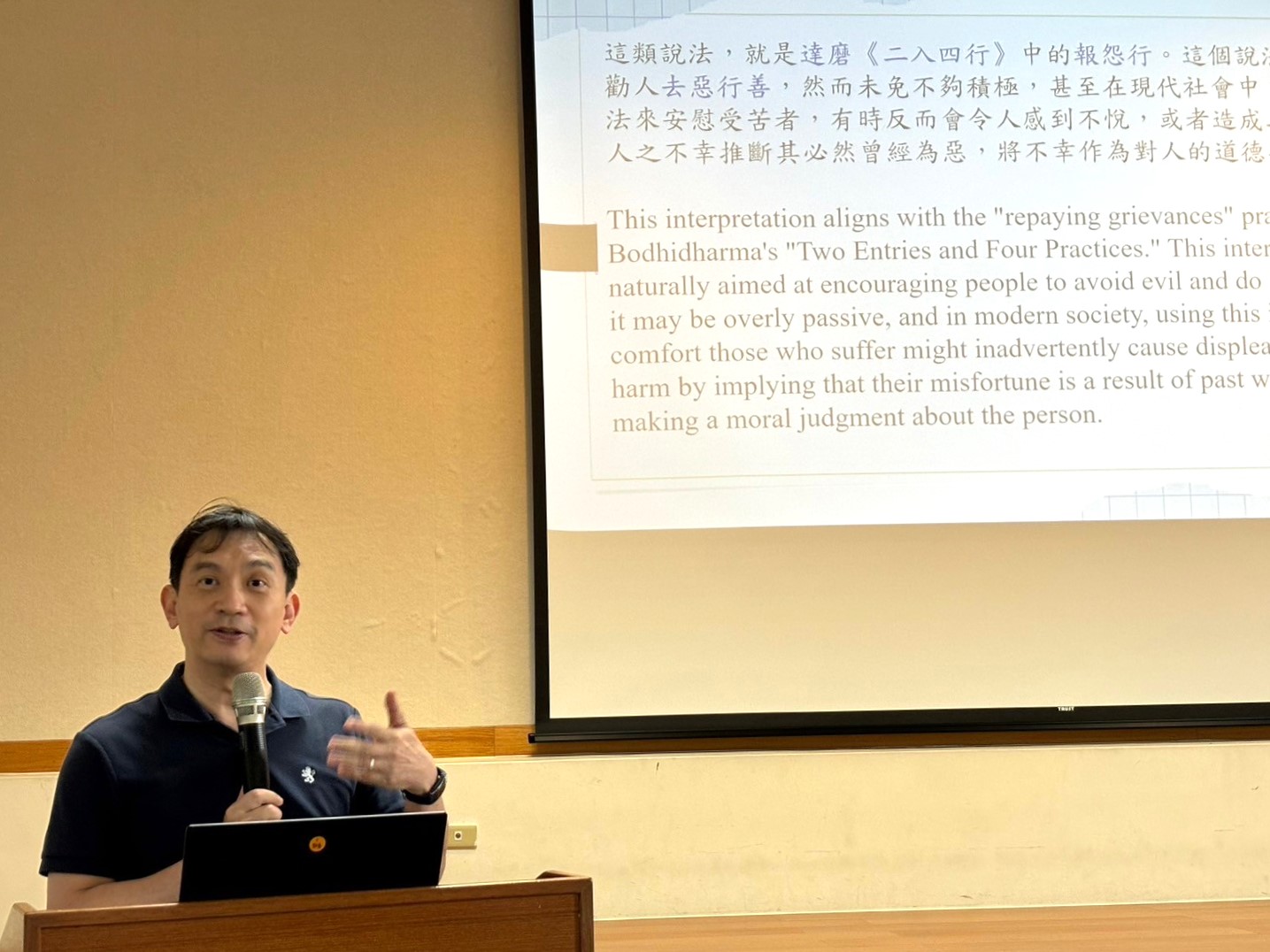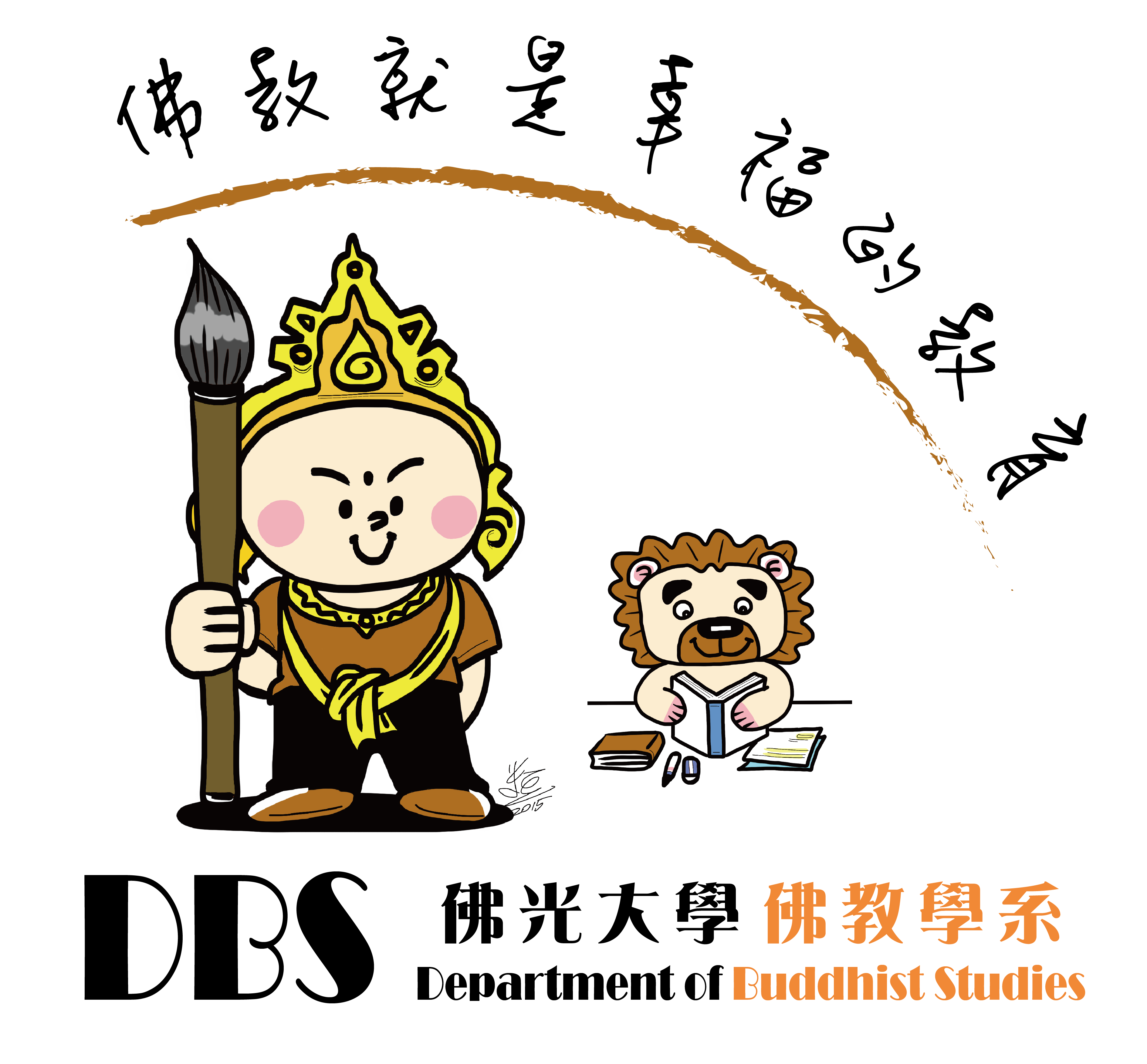Dean’s 112-2 End-of-Semester Address to the Entire College
Recently, I have often mentioned in classes or at academic conferences that karma seeds can be understood as a cultural concept. According to Yogācāra, karma seeds are formed through the conditioning of language and culture, which is how we understand and express all objects. This language culture forms the basic structure of the ālayavijñāna (store consciousness) of sentient beings. Understanding karma seeds as a cultural concept can encompass two interpretations: viewing karma as a "debt" or as a "favor." Let me discuss these two interpretations briefly.
The notion of viewing karma as a debt often appears in Chinese folk texts known as ‘precious scrolls’ that emphasize cause and effect retribution. Precious scrolls tend to stress that the suffering we endure in this life is the repayment of the evil deeds we committed in the past, and the evil deeds we commit in this life will be repaid in future lives. Therefore, if one has unfilial children, parents might say they are here to collect debts; when encountering misfortune, one might console oneself by thinking it is karmic retribution. This interpretation aligns with the "repaying grievances" practice in Bodhidharma's "Two Entries and Four Practices." This interpretation is naturally aimed at encouraging people to avoid evil and do good. However, it may be overly passive, and in modern society, using this interpretation to comfort those who suffer might inadvertently cause displeasure or secondary harm by implying that their misfortune is a result of past wrongdoing, thus making a moral judgment about the person.
If we interpret it from the perspective of returning favors, in the fortunes and misfortunes of life, we should not forget the kindness we have received from others during times of happiness. However, when fortune turns to misfortune, we should remember the preciousness of the kindness we once received and not merely resent the current misfortune. Instead, we should strive to create conditions for happiness for ourselves and others. All fortunes and misfortunes arise from various conditions. If someone has never experienced happiness since birth, we should feel even more compassion for them and strive to bring them the nectar of happiness that can enrich their lives. This is how we repay the kindness we have received from others.
By interpreting karmic retribution from the perspective of returning favors rather than repaying debts, we can better understand why Venerable Master Hsing Yun established the Dripping Water cafes in his temples worldwide, because "a drop of water shall be returned with a burst of spring." Returning favors is not the same as repaying debts. Repaying debts involves a creditor and a debtor, requiring the debt to be repaid to a specific creditor. Returning favors, on the other hand, involves repaying the kindness received to all beings and everything in the universe. The karmic view of repaying debts only teaches endurance, while the karmic view of returning favors, as advocated by the Venerable Master through the Three Acts of Goodness and the Four Givings, creates a virtuous cycle of karmic retribution, bringing the Pure Land to the human world.


 College and Department of Buddhist Studies, FGU
College and Department of Buddhist Studies, FGU